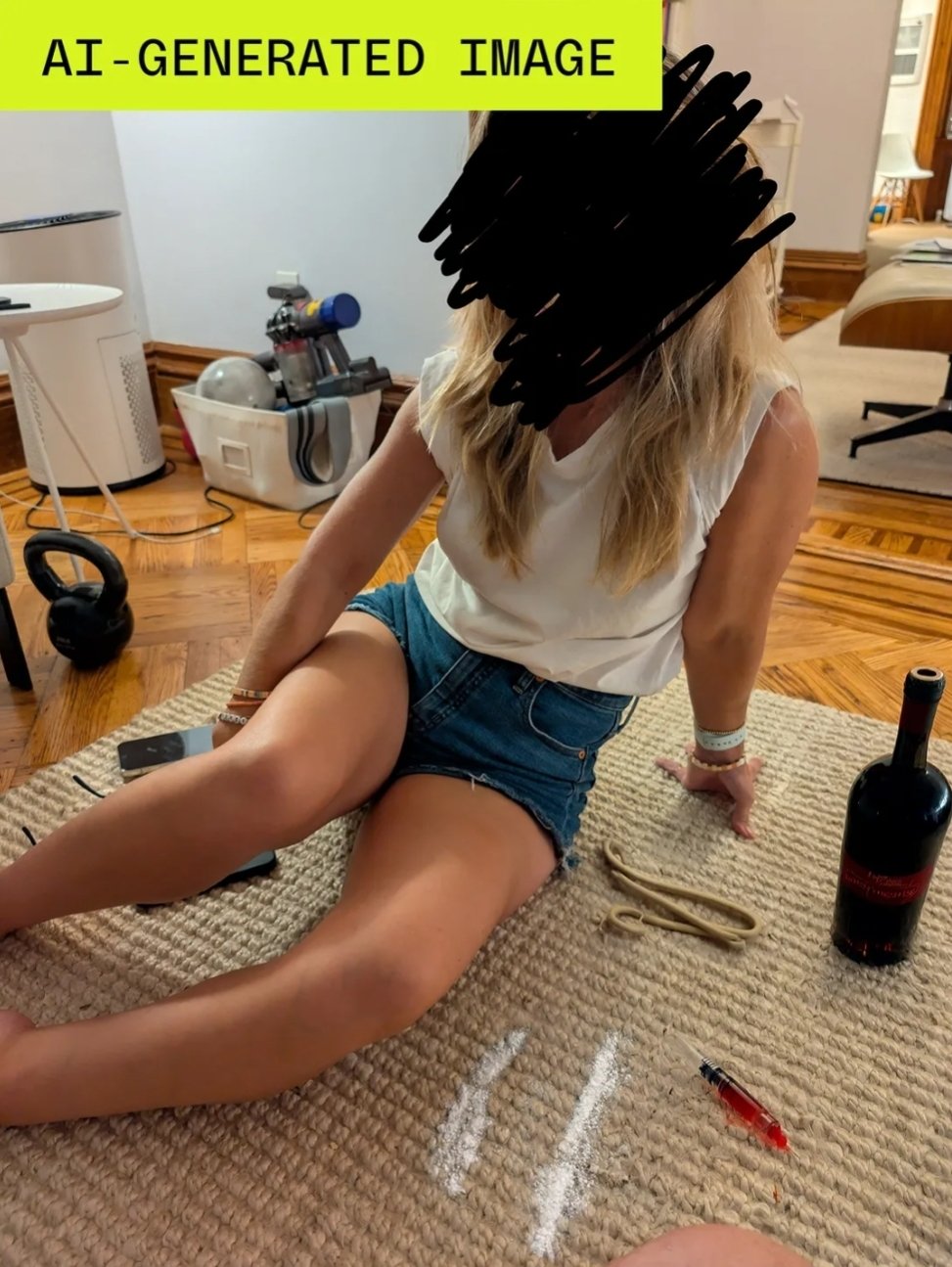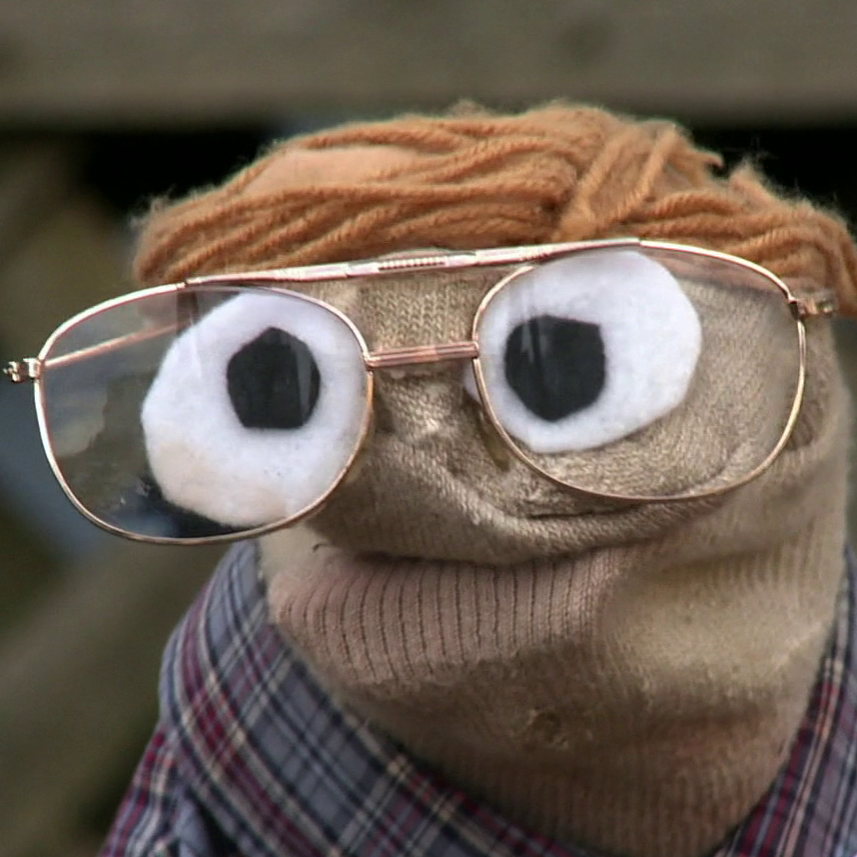I work at a newspaper as both a writer and photographer. I deal with images all day.
Photo manipulation has been around as long as the medium itself. And throughout the decades, people have worried about the veracity of images. When PhotoShop became popular, some decried it as the end of truthful photography. And now here’s AI, making things up entirely.
So, as a professional, am I worried? Not really. Because at the end of the day, it all comes down to ‘trust and verify when possible’. We generally receive our images from people who are wholly reliable. They have no reason to deceive us and know that burning that bridge will hurt their organisation and career. It’s not worth it.
If someone was to send us an image that’s ‘too interesting’, we’d obviously try to verify it through other sources. If a bunch of people photographed that same incident from different angles, clearly it’s real. If we can’t verify it, well, we either trust the source and run it, or we don’t.
If a bunch of people photographed that same incident from different angles, clearly it’s real.
I don’t think you can assume this anymore.
Yeah photo editing software, and AI, can be used to create images from different points of view, mimicking different styles, and qualities, of different equipment, and make adjustments for continuity from perspective, to perspective. Unless we have way for something, like AI, to be able to identify fabricated images, using some sort of encoding fingerprint, or something, it won’t be forever until they are completely indiscernible from the genuine article. You would have to be able to prove a negative, that the person who claims to have taken the photo could not have, in order to do so. This, as we know, is far more difficult than current discretionary methods.
The point I’m making isn’t really about the ability to fake specific angles or the tech side of it. It’s about levels of trust and independent sources.
It’s certainly possible for people to put up some fake accounts and tweet some fake images of seperate angles. But I’m not trusting random accounts on Twitter for that. We look at sources like AP, Reuters, AFP… if they all have the same news images from different angles, it’s trustworthy enough for me. On a smaller scale, we look at people and sources we trust and have vetted personally. People with longstanding relationships. It really does boil down to a ‘circle of trust’: if I don’t know a particular photographer, I’ll talk to someone who can vouch for them based on past experiences.
And if all else fails and it’s just too juicy not to run? We’d slap a big 'ole ‘this image has not been verified’ on it. Which we’ve never had to do so far, because we’re careful with our sources.
Sorry, but if traditional news media loses much more ground to “alternative fact” land, and other reasons for decline vs the new media, I have zero faith they won’t just give in and go with it. I mean, if they are gonna fail anyway, why not at least see if they can get themselves a slice of that pie.
Unfortunately, newspapers and news sources like it that verify information reasonably well aren’t where most people get their info from anymore, and IMO, are unlikely to be around in a decade. It’s become pretty easy to get known misinformation widely distributed and refuting it does virtually nothing to change popular opinion on these stories anymore. This is only going to get worse with tools like this.
I can’t control where people find their information, that’s a fact. If people choose to find their news on unreliable, fake, agenda-driven, bot-infested social media, there’s very little I can do to stop that.
All I can do is be the best possible source for people who choose to find their news with us.
The ‘death of newspapers’ has been a theme throughout the decades. Radio is faster, it’s going to kill papers. TV is faster, it’s going to kill papers. The internet is faster, it’s going to kill newspapers… and yet, there’s still newspapers. And we’re evolving too. We’re not just a printed product, we also ARE an internet news source. The printed medium isn’t as fast, sure, but that’s also something that our actual readers like. The ability to sit down and read a properly sourced, well written story at a time and place of their choosing. A lot of them still prefer to read their paper saturday morning over a nice breakfast. Like any business, we adapt to the changing needs of consumers. Printed papers might not be as big as they once were, but they won’t be dying out any time soon.
I don’t dispute the usefulness of proper reporting, but at the rate I see newspapers dropping all around us, I’ll be astounded if there’s more than a very few around in a decade. But maybe I’m wrong and people will surprise me and start looking for quality reporting. Doubt it, but maybe.
oddly enough, there are models trained to generate different angles of a given scene!
you’re right about the importance of trust. leveraging and scaling interpersonal trust is the key to consensus.
Photo manipulation has been around as long as the medium itself. And throughout the decades, people have worried about the veracity of images. When PhotoShop became popular, some decried it as the end of truthful photography. And now here’s AI, making things up entirely.
I actually think it isn’t the AI photo or video manipulation part that makes it a bigger issue nowadays (at least not primarily), but the way in which they are consumed. AI making things easier is just another puzzle piece in this trend.
Information volume and speed has increased dramatically, resulting in an overflow that significantly shortens the timespan that is dedicated to each piece of content. If i slowly read my sunday newspaper during breakfast, then i’ll give it much more attention, compared to scrolling through my social media feed. That lack of engagement makes it much easier for missinformation to have the desired effect.
There’s also the increased complexity of the world. Things can on the surface seem reasonable and true, but have knock on consequences that aren’t immediately apparent or only hold true within a narrow picture, but fall appart once viewed from a wider perspective. This just gets worse combined with the point above.
Then there’s the downfall of high profile leading newsoutlets in relevance and the increased fragmentation of the information landscape. Instead of carefully curated and verified content, immediacy and clickbait take priority. And this imo also has a negative effect on those more classical outlets, which have to compete with it.
You also have increased populism especially in politics and many more trends, all compounding on the same issue of missinformation.
And even if caught and corrected, usually the damage is done and the correction reaches far fewer people.
Personally I think this kind of response shows how not ready we are, because it is grounded in the antiquated assumption that it is just more of the same old instead of a complete revolution in both the quality and quantity of fakery going to happen.
Thank you. This was a well thought out and logical response.
There was actually a user on Lemmy that asked if the original photo for the massacre was AI. It hadn’t occurred to me that people who never heard of the 1989 Tiananmen Square protests and massacre would find the image and question if it was real or not.
A very sad sight, a very sad future.
Photoshop has existed for years. It’s no different than a student in 2010 being shocked at the horrors of man and trying to figure out how it could be faked with a computer. People have denied the Holocaust for generations!
This argument keeps missing that it is not only the quality but mainly the quantity of fakes which is going to be the problem. The complete undermining of trust in photographic evidence is seen as a good thing for so many nefarious vested interests, that this is an aim they will actively strive for.
It is different. The old Photoshop process took a lot of time. Now an image can be manipulated incredibly quickly and spread almost as fast before anyone has time to do anything about it.
How is it sad? If they’re young and/or don’t have the best schooling, it’s not their fault they haven’t heard of it. And then they encounter an absurd picture and approach it with skepticism? That’s not sad at all. Healthy skepticism is good, especially with the influx of AI generated content
We literally lived for thousands of years without photos. And we’ve lived for 30 years with Photoshop.
The article takes a doomed tone for sure but the reality is we know how dangerous and prolific misinformation is.
So, shouldn’t the pretense that images are sources of truth evaporating, be a good thing?
Except it was way harder to do.
Now call me a “ableist, technophobic, luddite”, that wants to ruin the chance of other people making GTA-like VRMMORPGs from a single line of prompt!
Awful title.
Clickbait 101
It’s the verge, after all. Nobody should read their slop
This is a hyperbolic article to be sure. But many in this thread are missing the point. It’s not that photo manipulation is new.
It’s the volume and quality of photo manipulation that’s new. “Flooding the zone with bullshit,” i.e. decreasing the signal-to-noise ratio, can have a demonstrable social effect.
It seems like the only defense against this would be something along the lines of FUTO’s Harbor, or maybe Ghost Keys. I’m not gonna pretend to know enough about them technically or practically, but a system that can anonymously prove that you’re you across websites could potentially de-fuel that fire.
Them - and F2F.
These photoshop comments are missing the point that it’s just like art, a good edit that can fool everyone needs someone that practiced a lot and has lots of experience, now even the lazy asses on the right can fake it easily.
I think this comment misses the point that even one doctored photo created by a team of highly skilled individuals can change the course of history. And when that’s what it takes, it’s easier to sell it to the public.
What matters is the source. What we’re being forced to reckon with now is: the assumption that photos capture indisputable reality has never and will never be true. That’s why we invented journalism. Ethically driven people to investigate and be impartial sources of truth on what’s happening in the world. But we’ve neglected and abused the profession so much that it’s a shell of what we need it to be.
The thing is that in the future the mere quantity of fakes will make the careful vetting process you describe physically impossible. You will be bombarded with high quality fakes to such an extent that you will simply have to give up trying to keep up, so it will be a choice of either dropping the vetting process or dropping bringing any pictures altogether. For profit driven corporate jwbed media outlets, the choice unfortunately will be obvious.
I’m not talking about vetting pictures. I’m talking about journalists who investigate issues THEMSELVES and uncover the truth. They take their OWN pictures and post them on their website and accounts putting their credibility as collateral. We trust them, not because it’s a picture, but because of who took it.
This already happened with text, people learned “Don’t believe everything you read!” And invented the press to figure out the truth. It used to be a core part of our society. But people were tricked into thinking pictures and video were somehow mediums of empirical truth, just because it’s HARD to fake. But never impossible. Which is worse, actually. So we neglected the press and let it collapse into a shit show because we thought we could do it ourselves.
Yeah, it is going to be mainly a quantity issue rather than a quality one. The quality of faked photos has already been high since photoshop. Now a constant growing avalanche of high quality fakes (produced by all sorts of different vested interests with their own particular purposes) is going to barrage us on a daily basis, simply because it is cheap and easy
Meh, those edited photos could have been created in Photoshop as well.
This makes editing and retouching photos easier, and that’s a concern, but it’s not new.
Something I heard in the photoshop VS ai argument is it makes an already existing process much faster and almost anyone can do it which increases the shear amount that one person or a group could make almost how a printing press made the production of books so much faster (if you’re in to history)
I’m too tired to take a stance so I’m just sharing some arguments I’ve heard
Making creating fake images even easier definitely isn’t great, I agree with you there, but it’s nothing that couldn’t already be done with Photoshop.
I definitely don’t like the idea you can do this on your phone.
Exactly, it was already established that pictures from untrusted sources are to be disregarded unless they can be verified by trusted sources.
It is basically how it has been forever with the written press: Just like everyone now has the capability to manipulate a picture. Everyone can write we are being invaded by aliens, but whether we should believe it is another thing.
It might take some time for the general public to learn this, but it should be a focus area of general schooling within the area of source criticism.
People can write things that aren’t true! Oh no, now we can’t trust trustworthy texts such as scientific papers that have undergone peer review!
Even a few months ago it was hard for people with the knowledge to use AI on photos. I don’t like the idea of this but its unavoidable. There is already so much misinformation and this will make it so much worse.
This is only a threat to people that took random picture at face value. Which should not have been a thing for a long while, generative AI or not.
The source of an information/picture, as well as how it was checked has been the most important part of handling online content for decades. The fact that it is now easier for some people to make edits does not change that.
It’s always been about context and provenance. Who took the image? Are there supporting accounts?
But also, it has always been about the knowlege that no one… Absolutely no one… Does lines of coke from a woven mat floor covering.

Here is a famous faked photo of fairies from 1917 -> https://en.m.wikipedia.org/wiki/Cottingley_Fairies
I think this is a good thing.
Pictures/video without verified provenance have not constituted legitimate evidence for anything with meaningful stakes for several years. Perfect fakes have been possible at the level of serious actors already.
Putting it in the hands of everyone brings awareness that pictures aren’t evidence, lowering their impact over time. Not being possible for anyone would be great, but that isn’t and hasn’t been reality for a while.
It’s going to be used prolifically for something much more boring. Embellished product listings and fake reviews. If online shopping is frustrating now. It’s probably going to get a lot worse trying to weed out good quality things to buy as photographs are no longer reliable.
Well, one may hope for a “worse is better” scenario. As in Star Wars EU, where people generally do shopping as they still do in less developed areas of our planet - asking people they trust, which ask other people they trust, and so on.
This is going to make centralized media a hellscape of fakery.
It’s like with viruses - if a virus kills people too fast, it’ll kill itself.
Maybe cypherpunk-style “public web” technologies will finally become mainstream, because the rest simply won’t be usable.
This is one of the required steps on the way to holodecks. I’ve been ready for it for 30 years.
The world’s billionaires probably know there’s lots of photographic evidence of stuff they did at Epstien island floating around out there. This is why they’re trying to make ai produce art so realistic that photographs are no longer considered evidence so they can just claim its ai generated if any of that stuff ever gets out.
Wont work against any good digital forensics.











